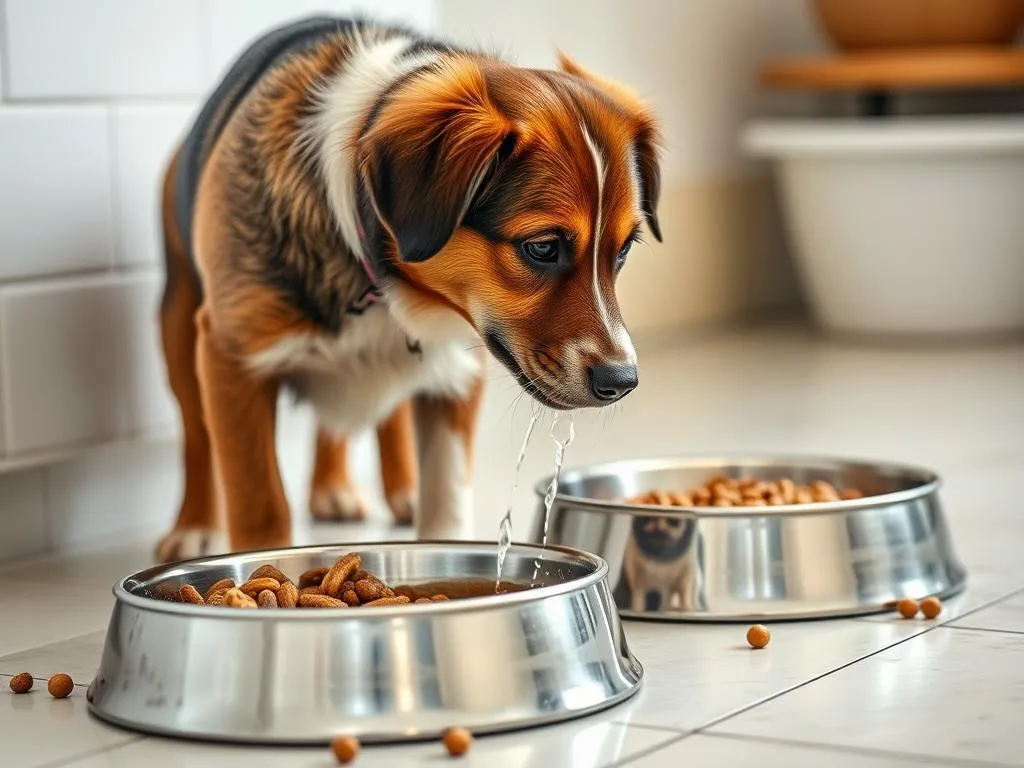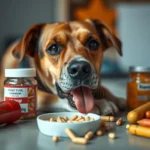
Maintaining your dog’s health goes hand in hand with ensuring their environment is clean and hygienic, particularly when it comes to their food and water bowls. How often to wash dogs food water bowls is a question many dog owners may not think about frequently enough, but it can have a significant impact on your pet’s overall health.
Understanding Dog Health Care
Importance of Regular Health Care
Routine health care is fundamental to keeping your dog happy and healthy. Regular veterinary check-ups and vaccinations help catch potential health issues before they become serious. Preventative measures such as flea and tick control, heartworm prevention, and dental care are also essential components of your dog’s health strategy.
Components of Dog Health Care
Dog health care covers several key components:
-
Diet and Nutrition: Providing a balanced diet that meets your dog’s specific needs is vital for their health. This includes choosing high-quality food and monitoring their weight and dietary restrictions.
-
Exercise and Mental Stimulation: Regular physical activity is essential for maintaining a healthy weight and preventing behavioral issues. Mental stimulation through toys and training can also keep your dog engaged and happy.
-
Grooming and Hygiene: Regular grooming helps minimize shedding and maintain a clean coat, while proper hygiene, including cleaning food and water bowls, is crucial for preventing illness.
The Role of Cleanliness in Dog Health
Why Clean Bowls Matter
Dirty food and water bowls can be breeding grounds for bacteria. When bowls are not cleaned regularly, harmful microorganisms can grow, leading to potential digestive issues for your dog. This can result in vomiting, diarrhea, or more severe health concerns.
Signs of Dirty Bowls
Keep an eye out for the following signs that your dog’s bowls may need cleaning:
-
Unpleasant Odors: A foul smell coming from your dog’s bowls can indicate bacterial growth.
-
Visible Grime or Residue: Any leftover food particles or a cloudy appearance in water can signal that bowls need a thorough cleaning.
-
Changes in Dog’s Eating Habits: If your dog suddenly becomes disinterested in their food or water, it could be due to unclean bowls.
How Often to Wash Dog Food and Water Bowls
General Guidelines
To maintain optimal hygiene, it is generally recommended to clean your dog’s food and water bowls daily. This ensures that harmful bacteria do not have the chance to thrive. Additionally, a more thorough deep cleaning should occur on a weekly basis, where bowls are washed with hot, soapy water or in the dishwasher.
Factors Affecting Cleaning Frequency
Several factors can influence how often you should wash your dog’s bowls:
-
Number of Dogs in the Household: More dogs mean more frequent use, which increases the likelihood of bacteria growth.
-
Type of Food (Wet vs. Dry): Wet food can spoil quickly compared to dry food, necessitating more frequent cleaning.
-
Dog’s Health Conditions and Age: Puppies and senior dogs may have weaker immune systems and may require more vigilant cleaning practices.
Best Practices for Cleaning Bowls
To ensure you are effectively cleaning your dog’s bowls, consider these best practices:
-
Recommended Cleaning Solutions: Use pet-safe detergents to avoid introducing harmful chemicals to your dog’s environment.
-
Methods for Effective Cleaning: Hand-washing bowls with hot, soapy water is effective, but if your bowls are dishwasher safe, this method can provide a thorough clean.
-
Importance of Rinsing Thoroughly: Always rinse bowls thoroughly to remove any detergent residue, as this can be harmful to your dog.
Additional Hygiene Practices for Dog Health
Cleaning Other Dog Accessories
Maintaining a clean environment extends beyond just food and water bowls. Regularly clean your dog’s dishes, toys, and bedding. This helps prevent the buildup of dirt and bacteria, contributing to your dog’s overall health.
Maintaining a Clean Environment
A clean home is essential for your dog’s well-being. Regularly vacuuming and dusting your living space can help reduce allergens and hazards. Additionally, consider using air purifiers to maintain good air quality.
Common Mistakes in Dog Hygiene Practices
Overlooking Bowl Cleaning
Neglecting to clean your dog’s bowls regularly can lead to serious health consequences. Many pet owners may mistakenly believe that their dog’s saliva or food is sufficient to keep bowls clean. This myth can lead to the development of harmful bacteria.
Improper Cleaning Methods
Using harmful chemicals or failing to rinse thoroughly can also pose risks. Always opt for pet-safe cleaning solutions and make sure to rinse bowls to eliminate any trace of detergent before refilling them with food or water.
Conclusion
The cleanliness of your dog’s food and water bowls is directly linked to their health and well-being. Regularly washing these bowls prevents the growth of harmful bacteria and helps avoid digestive issues and illness. By implementing a consistent cleaning schedule and being mindful of your dog’s environment, you can help ensure that your furry friend stays happy and healthy.
Monitoring your dog’s health and being proactive about hygiene practices can make a significant difference in their quality of life.









